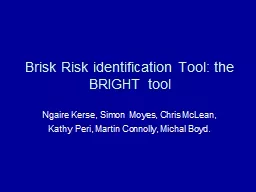PPT-CSSV: Towards a Realistic Tool for Statically Detecting
Author : olivia-moreira | Published Date : 2016-09-16
All Buffer Overflows in C Nurit Dor Michael Rodeh Mooly Sagiv PLDI2003 DAEDALUS project from web2c strpascalc void foo char s while s s
Presentation Embed Code
Download Presentation
Download Presentation The PPT/PDF document "CSSV: Towards a Realistic Tool for Stati..." is the property of its rightful owner. Permission is granted to download and print the materials on this website for personal, non-commercial use only, and to display it on your personal computer provided you do not modify the materials and that you retain all copyright notices contained in the materials. By downloading content from our website, you accept the terms of this agreement.
CSSV: Towards a Realistic Tool for Statically Detecting: Transcript
Download Rules Of Document
"CSSV: Towards a Realistic Tool for Statically Detecting"The content belongs to its owner. You may download and print it for personal use, without modification, and keep all copyright notices. By downloading, you agree to these terms.
Related Documents














